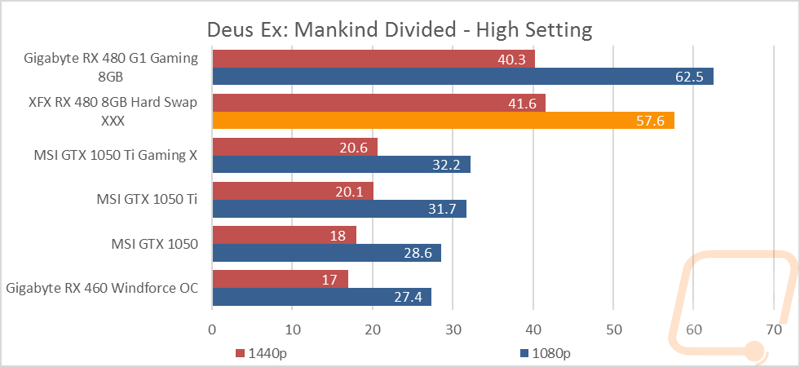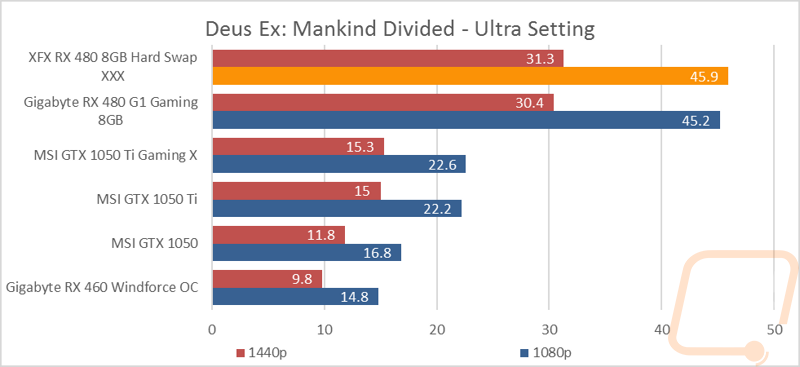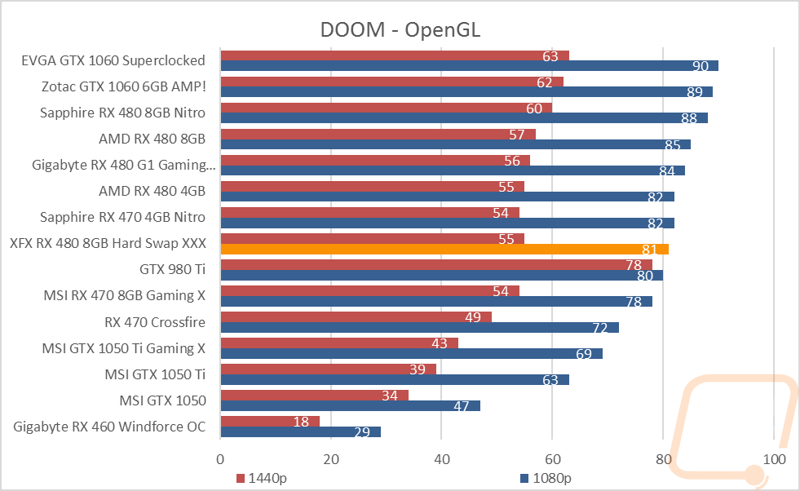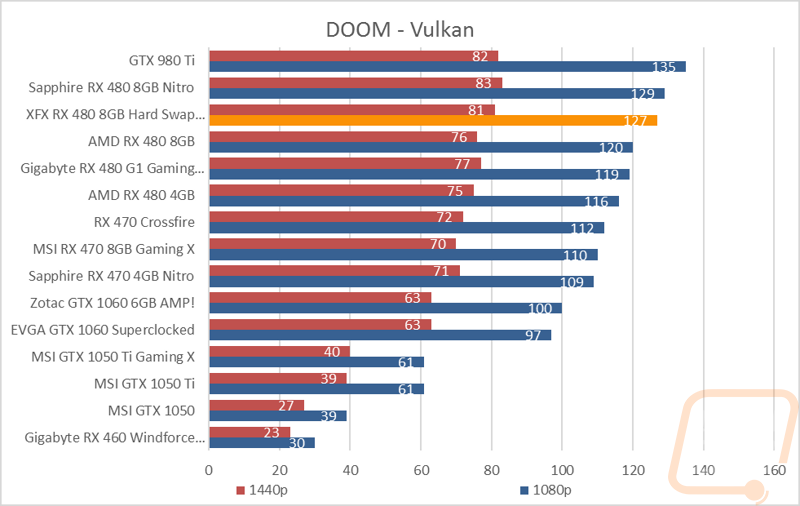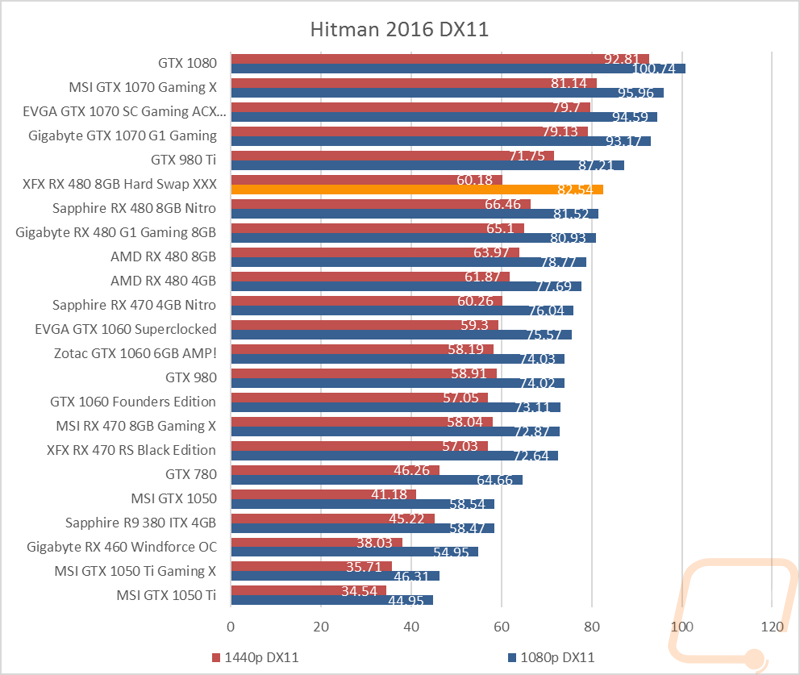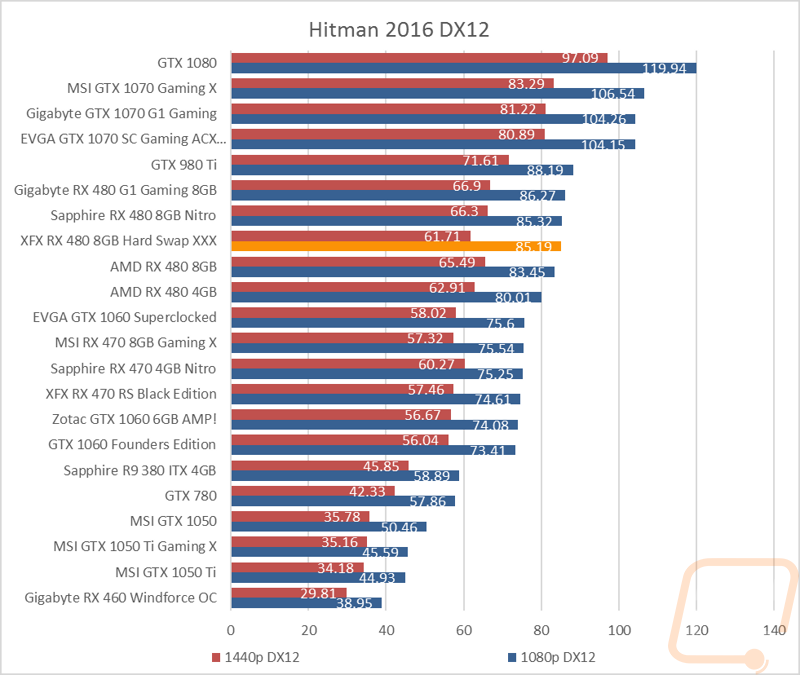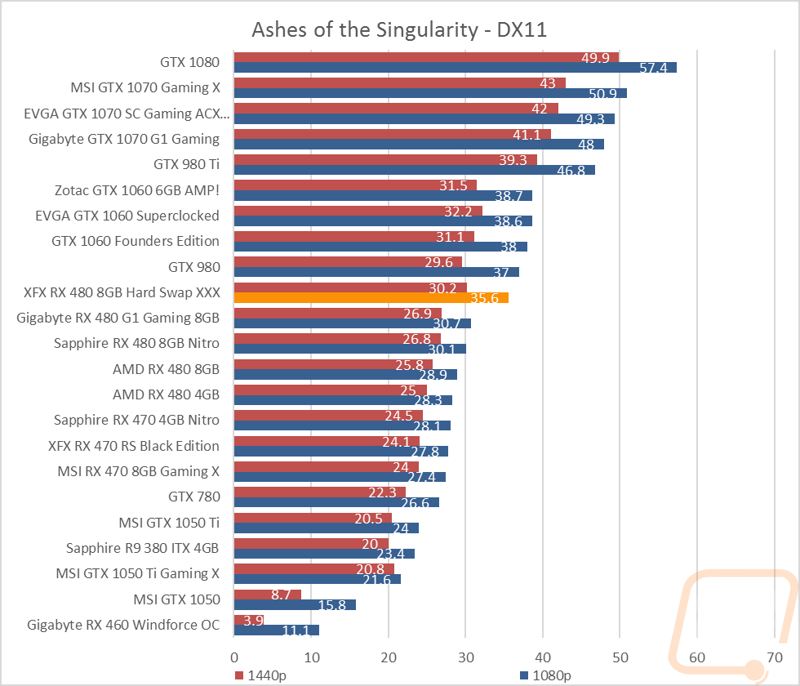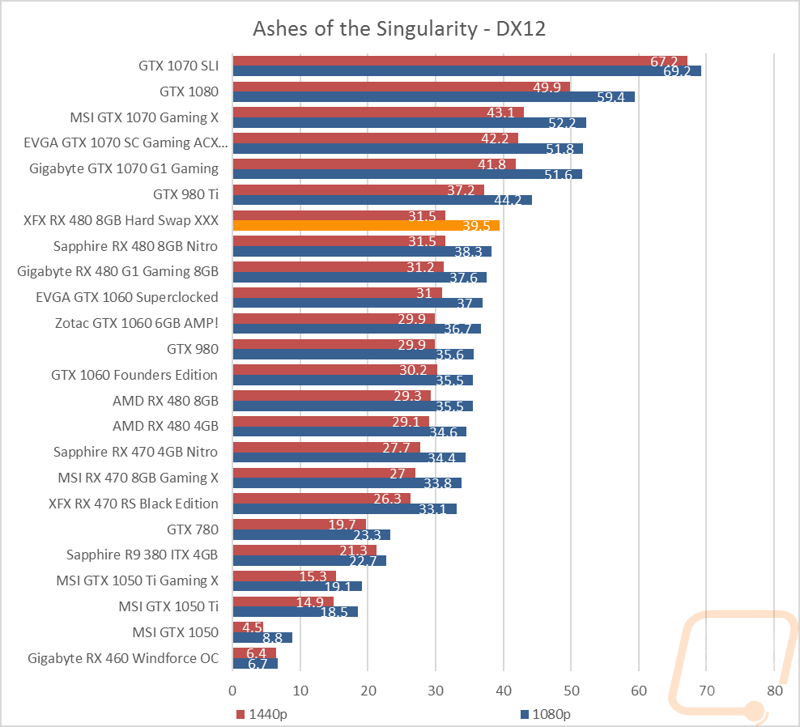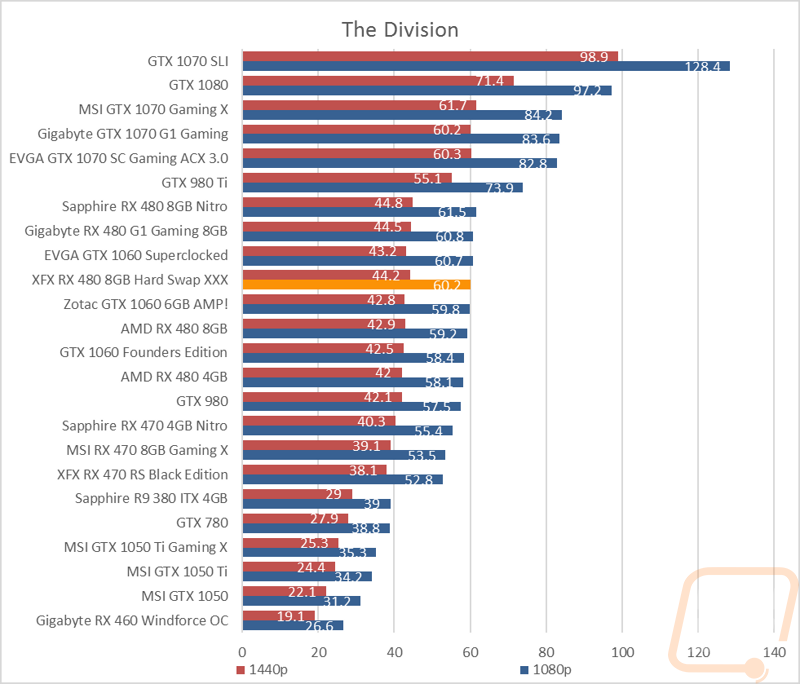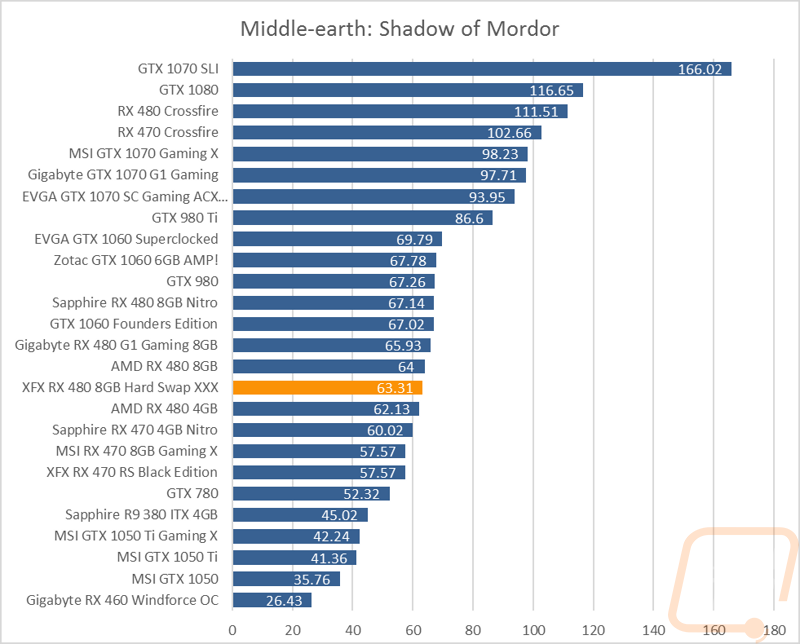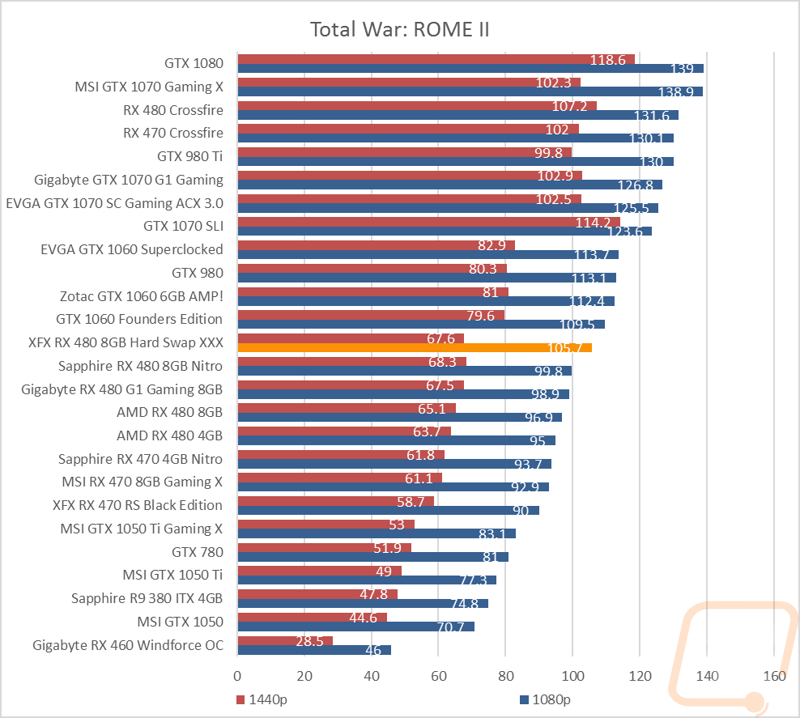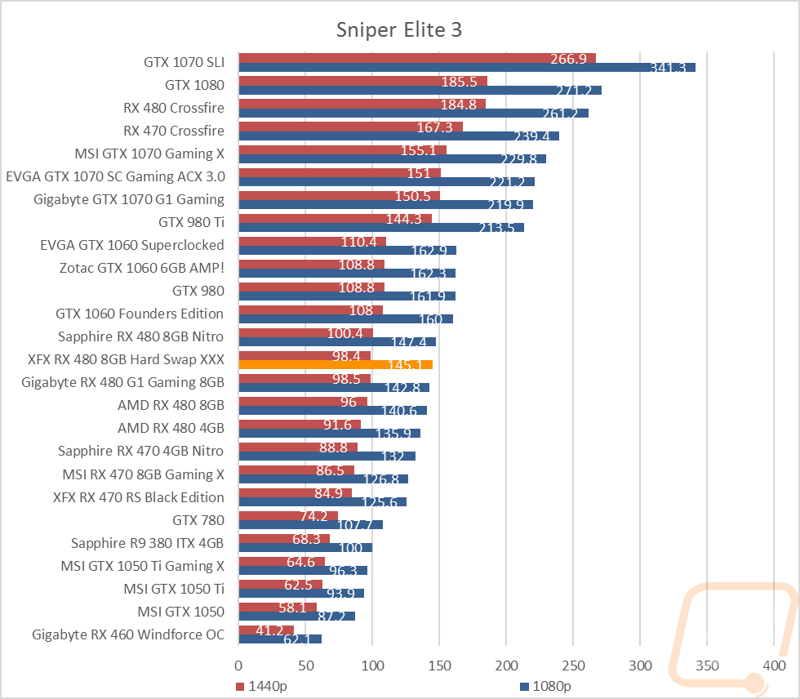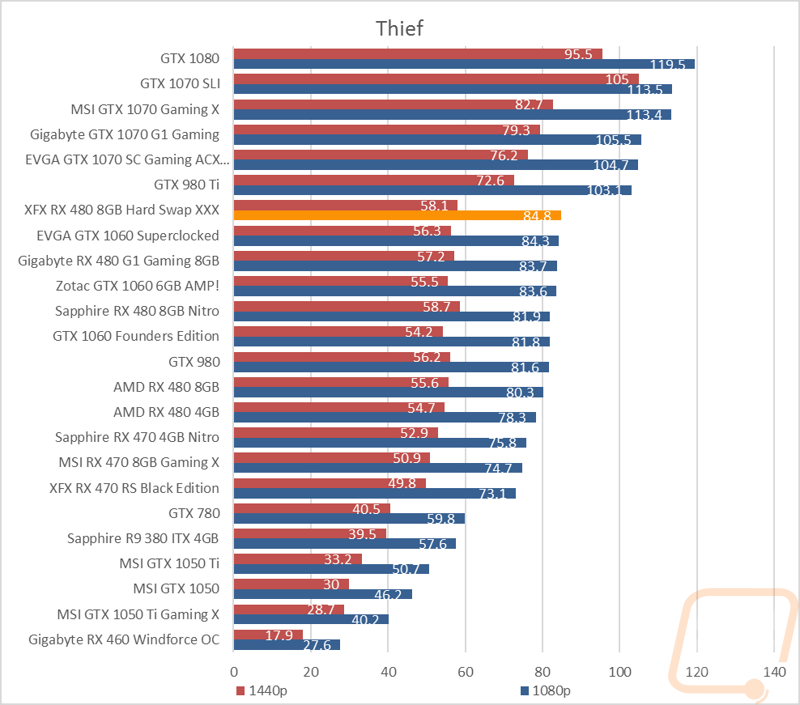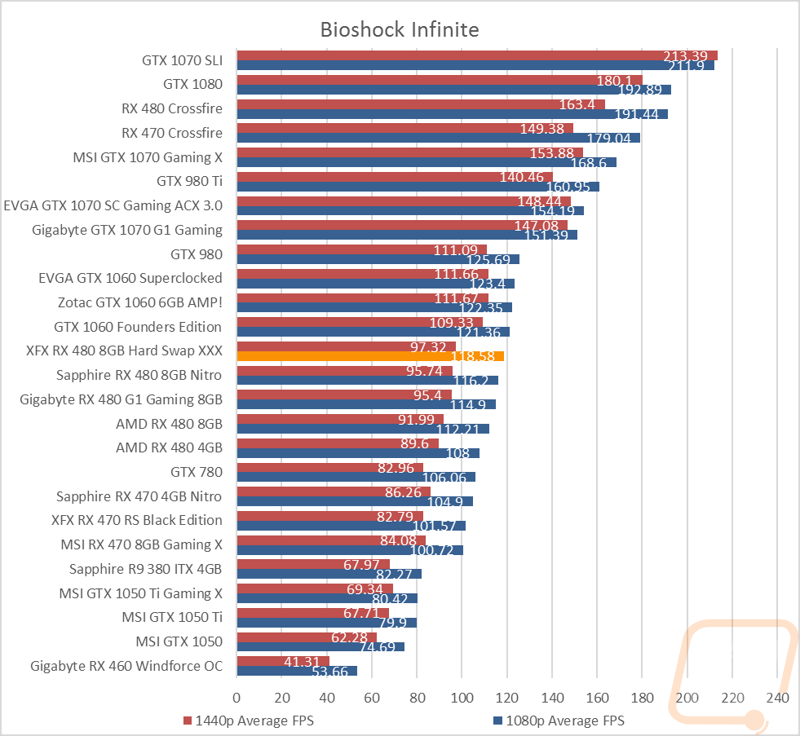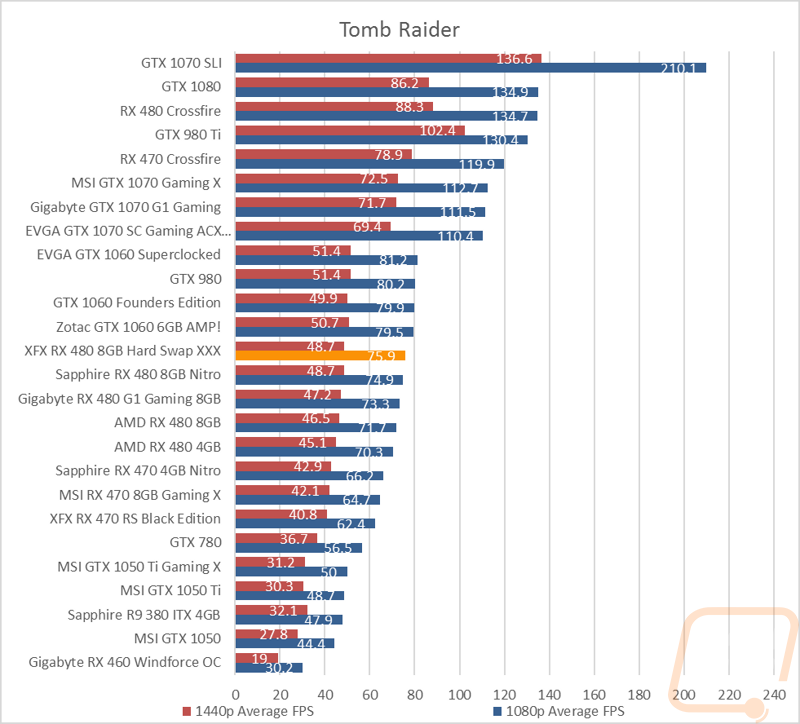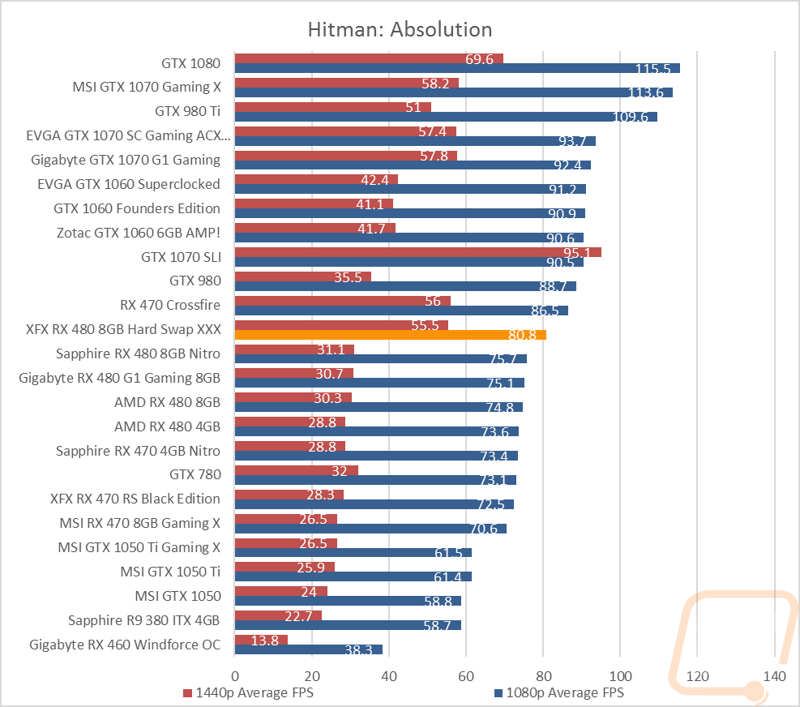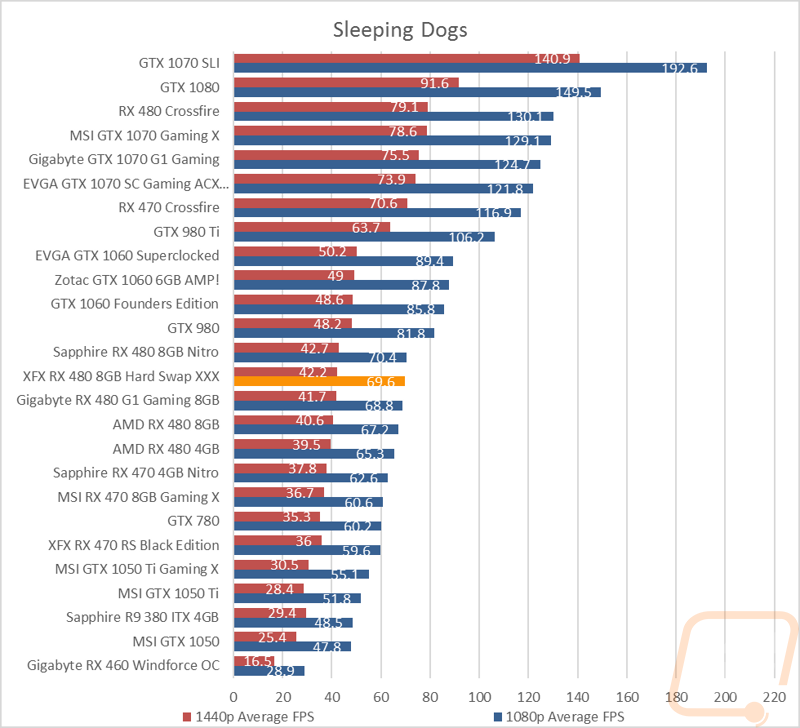In-Game Benchmarks
Now that we have an idea of how the cards stand compared to each other, it’s finally time to get down to the in-game performance numbers. To do that I ran through our entire in-game benchmark test suite. The suite has 13 different games tested at both 1080p and 1440p at their highest settings. Four of the games are also tested in more than one configuration to see the difference between DX11 and DX12 performance or in the case of the most recent addition, DOOM I test out both OpenGL and Vulkan performance. The problem is, with so many results it can be a little too much to take in. To help with that I have condensed our results into two graphs, one for 1080p and the other for 1440p. All of our games are run at their max settings and we use the average FPS as the end result. The graphs below are broken down into three FPS ranges to represent unplayable (below 30), playable but not ideal (30 to 60), and ideal (over 60 FPS). So what did I find from those results?
Well for starters, we know that the XFX 480 is going to play anything you throw at it. None of the games, including some of the ultra-demanding game, came in below 30 FPS, even at 1440p. At 1080p all but four were in the 60+ range. With the resolution turned up to 1440p only 7 were, so it’s clear that this isn’t the best card for 1440p if you want to crank up the settings on today's latest games, but 1080p is great. How did this compare to the Gigabyte? Well at 1080p is only had 3 in the 30-60 range but it did have a game in under 30 FPS at 1440p, so I would consider that a wash.


Of course, I always include all of the individual results for everyone to check out. Diving through them I noticed a few things. In Doom OpenGL, the 480’s performance seems to have dropped considerably, putting it down below the 470 in my tests with the older drivers. It's not a big deal though because the Vulkan performance is still amazing. I was really interested in two things, though. First, has performance increased on average with the new drivers and if so, how does the 480 now compare to the GTX 1060. To figure this all out I have to do a little math. So let's compare the XFX 480, the Gigabyte 480 that has a slightly higher clock speed as the XFX, and the EVGA GTX 1060. I used all of the in game results other than Deus Ex because it hadn’t been tested on the 1060. Here is the breakdown.
EVGA GTX 1060: 73.98
XFX RX 480: 71.95
Gigabyte RX 480: 70.04
So the new drivers do show an overall improvement on average across the games I tested with. A few of the games with DX12 or Vulkan did drop in performance on their OpenGL and DX11 versions, hurting the average a little. So the Overclocked GTX 1060 is still faster, but the gap is closing quickly. I would be willing to bet the even higher overclocked Sapphire 480 would be even closer. At this point though the different between the GTX 1060 and RX 480 is really just a preference in my opinion.
